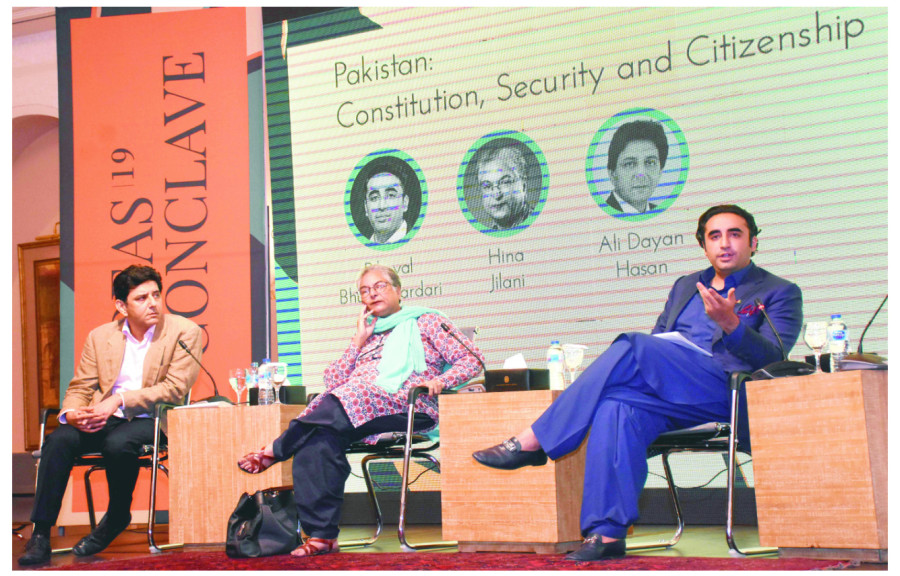Prominent personalities including film makers, poets, politicians, journalists and economists set the stage for a packed audience at day one of Jinnah Institute’s annual flagship event Ideas Conclave on Wednesday at the Serena Hotel Islamabad.
The first day opened with a session on the economy titled Thin Red Line: Pakistan’s Economic Trajectory, moderated by veteran journalist Mohammad Malick, who commented on the previous government’s legacy of deficits and pointed out that Pakistan’s energy problem remained largely unaddressed. Panelists included Khurram Dastgir, Ayesha Ghaus Pasha, Haroon Sharif and Akbar Zaidi. Key takeaways from the session were Pakistan’s largely unaddressed capacity problem, and the need to focus on a revival economy visavis growth, backed by political will and commitment. Providing policy recommendations, Pasha advised that the government to “undo the increase in interest rates; undo devaluation; and refrain from using exchange rate to curtail imports”, adding that it is imperative that the government “stop killing the informal economy.”
Session two titled Breaking Bad: Women and Modernity featuring Sharmeen Obaid Chinoy, Afiya Zia, Farzana Bari moderated by journalist Amber Rahim Shamsi. They were of the view that a silent revolution is underway among rural and urban Pakistani women. While women are more aware of their rights, it is the archaic social structures still inhibit implementation of pro women laws.Very few women work on women in agriculture, women in labour, or pro-women policies. To this end, men have an important role to play in promoting and helping the cause of mainstreaming women in prominent roles and feminism.
In the third session titled Language, Literature and Resistance, Poets Kishwar Naheed, Iftikhar Arif, and Noor ul Huda Shah engaged in a lively discussion on discussing the role literature has played in the political history of Pakistan. Panelists discussed the inevitability of all literature being political in nature, with poets having to declare sides in the age old struggle for human rights. They remembered revolutionary poets such as Faiz Ahmad Faiz who wrote on every political moment he was confronted with, reminding the audience of the resistance he faced like all poets who challenge the status quo with their work. The poets also lamented the suppression and subsequent erasure of literature in regional languages from mainstream consciousness, noting that this has resulted in the marginalization of many ethnic groups. The panel wrapped up with the poets recited a few verses of their work, speaking to the theme under discussion.
“We are not happy with politicians but our hope lies only in more democracy, more democracy. The process must go on,” said renowned human rights activist Hina Jillani as she spoke at the keynote panel for the day. The panel, moderated by Ali Dayan Hassan. titled Pakistan: Constitution, Security and Citizenship also had PPP Chairman Bilawal Bhutto Zardari as a keynote speaker. Bhutto urged that, “As we have made gains against terrorism Pakistan must transition from a security state to a rights based state.” Both speakers deliberated on ways in which the full measure of citizenship can be afforded to Pakistan’s citizens, discussing the importance of fundamental human rights as the premise of a secure state. The PPP Chairman stressed the importance of democracy and the need to educate our citizens that the solution to our problems and challenges from the economy to terrorism lies in more of democracy and more fundamental rights.—PR









